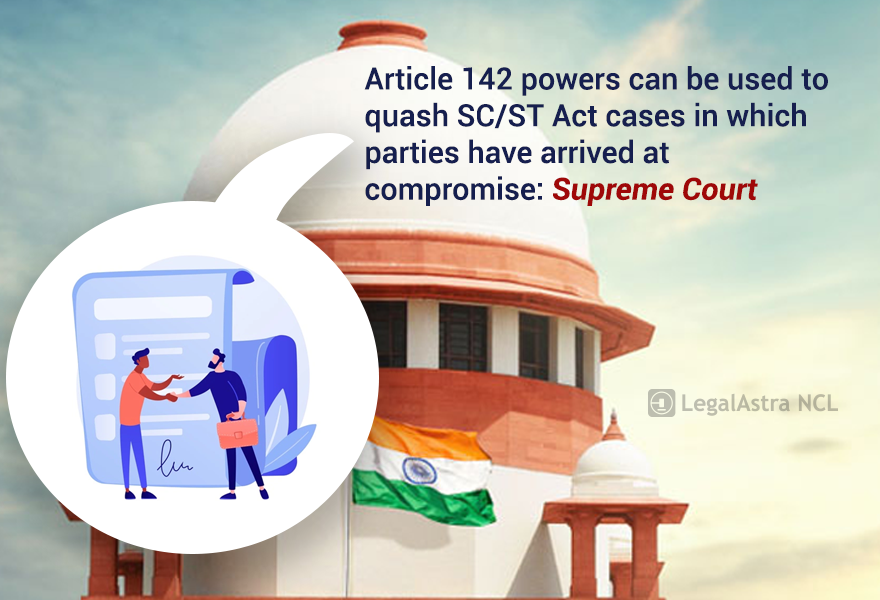“If the Court is satisfied that the underlying objective of the Act would not be contravened or diminished even if the felony in question goes unpunished, the mere fact that the offence is covered under a ‘special statute’ would not refrain this Court or the High Court, from exercising their respective powers under Article 142 of the Constitution or Section 482 CrPC,” the Court held.
However, such an action can only be undertaken when the compromise is made without any coercion or duress, the bench comprising the Chief Justice of India (CJI) NV Ramana and Justices Surya Kant and Justice Hima Kohli emphasised.


Track your NCLT / NCLAT cases or orders in your apple iOS / Google Android smartphones. Available for free trial period of 15 days.
“We may hasten to add that in cases such as the present, the Courts ought to be even more vigilant to ensure that the complainant/victim has entered into the compromise on the volition of his/her free will and not on account of any duress. If the Courts find even a hint of compulsion or force, no relief can be given to the accused party,” the judgment said.
Importantly, the Court said that the powers under Article 142 or under Section 482 CrPC, are exercisable in post conviction matters only where an appeal is pending before one or the other Judicial forum.
“This is on the premise that an order of conviction does not attain finality till the accused has exhausted his/her legal remedies and the finality is subjudice before an appellate court. The pendency of legal proceedings be that may before the final Court, is sine qua non to involve the superior court’s plenary powers to do complete justice,” the Court underscored.
Hence, where a settlement has ensued post the attainment of all legal remedies, the annulment of
proceedings on the basis of a compromise would be impermissible.
The Court in its judgment also said that ordinarily, when dealing with offences arising out of special statutes such as the SC/ST Act, the Court should be extremely circumspect in its approach.
This is because the SC/ST Act has been specifically enacted to deter acts of indignity, humiliation and
harassment against members of Scheduled Castes and Scheduled Tribes.
But where it appears to the Court that the offence in question, although covered under the SC/ST Act, is primarily private or civil in nature, or where the alleged offence has not been committed on account of the caste of the victim, or where the continuation of the legal proceedings would be an abuse of the process of law, the Court can exercise its powers to quash the proceedings, the three-judge Bench ruled.
The Court noted that the dispute arose out of a minor property issue and the abuses were utterly out of frustration, that it was predominantly a civil matter with “minor undertones of criminality.” It was observed that the appellant himself belonged to a relatively backward section of the society and was not mentally depraved.
Finally, underlining that there have never been any untoward incidents between the parties before and after the incident and that the victim has entered into a compromise voluntarily, it would be appropriate for the court to quash the proceedings against the appellant.
“Consequently, and for the afore mentioned reasons, we find it appropriate to invoke our powers under Article 142 of the Constitution and quash the criminal proceedings to do complete justice between the parties,” the Bench concluded.
